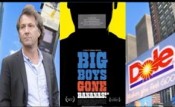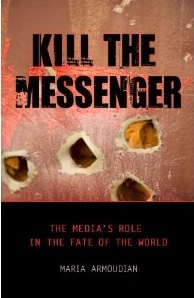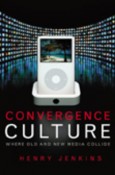Q&A: FREDRIK GERTTEN, BIG BOYS GONE BANANAS and LINCOLN BANDLOW, Attorney
Written on July 31st, 2012 |
Aired 07/29/12
I talk with FREDRIK GERTTEN, whose new film BIG BOYS GONE BANANAS documents the efforts of food giant Dole to keep his previous film BANANAS from ever being seen. We’ll be joined by his attorney, LINCOLN BANDLOW. The first film told the story of Nicaraguan plantation workers successful suit in Los Angeles against Dole for the health effects of its use of a banned and dangerous pesticide.
FREDRIK GERTTEN is an award winning director and journalist based in Malmo Sweden. Before founding his production company WG Film, he worked as a correspondent and columnist for radio, TV and press in Africa, Latin America, Asian and Europe. His films include Belfast Girls; I Bought a Rain Forest; Bananas; and his latest, Big Boys Gone Bananas.
LINCOLN BANDLOW specializes in litigating media, First Amendment, intellectual property and other entertainment related matters in the motion picture, television, publishing, broadcasting, internet and advertising fields. In addition to practicing law, Mr. Bandlow has been a visiting professor at the Annenberg School of Journalism at the University of Southern California since the Spring of 1995. In 2012 he was named one of the Top 100 Entertainment Power Lawyers by the Hollywood Reporter.
Q&A: MARIA ARMOUDIAN, Journalist/Radio Host
Written on August 12th, 2011 |
Aired 08/08/11
KILL THE MESSENGER emerged from MARIA ARMOUDIAN's studies into the causes of genocide, war, peacemaking, democratization, and the protection of human rights and the environment, while she was working on her Ph.D. at the University of Southern California, as well as during her work as a broadcast journalist and public official. Looking across conflicts and policy successes and failures, she found that media (and media professionals) were among key factors in determining political outcomes, including matters of life and death.
Written in five parts, KILL THE MESSENGER shows how media fomented rage and genocide in Rwanda, the Holocaust and the Bosnian war; how they helped bring peace in the Northern Ireland Conflict and the war in Burundi; how media contributed to democratization and the protection of human rights in South Africa, Taiwan, Mexico, and Senegal, and how they aided both the destruction and rebuilding of democracy in Chile. In its final case study, Kill the Messenger explores the media's role in the fate of the world, as journalists disentangle the issue of climate change for the public.
The book's forward was written by Tom Hayden.
Q&A: HENRY JENKINS, Author, CONVERGENCE CULTURE: Where Old and New Media Collide
Written on July 21st, 2009 |
Aired 07/21/09
HENRY JENKINS is the Provost's Professor of Communications, Journalism, and Cinematic Art at the University of Southern California. Until recently, he served as the co-founder of the Comparative Media Studies Program at the Massachusetts Institute of Technology. His newest books include Convergence Culture: Where Old and New Media Collide and Fans, Bloggers and Gamers: Exploring Participatory Culture.
